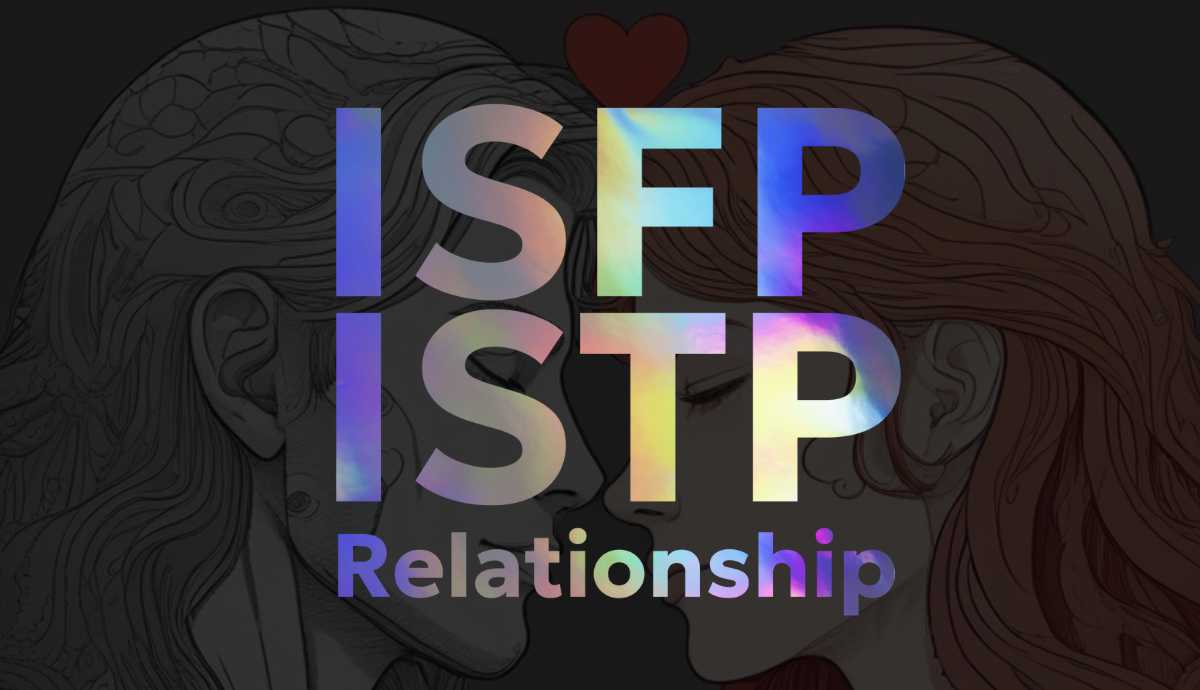If you are an INFP, it means that you are an introvert who is passionate, idealistic, sensitive, curious, adaptable and imaginative. For you, what you feel is what’s real and important. You tend to let your heart be your guide in your decisions. You seek to be authentic and true to what you feel is “right”. Moral considerations hold more significance to you than pure logic. The logic of sacrificing one person to save a hundred people is probably something you would resist strongly.
INFPs are highly individualistic. Being different and unique is an essential part of who they are. They strive to carve out an identity for themselves or rather, find a fulfilling outlet for their eccentricities. People of this type can feel like a fraud when they are pushed to do or be what is socially or conventionally expected of them.
Despite their great compassion and sensitivity, they can seem aloof and self absorbed. Although they care about people, human interaction can be very draining for them. Being the reserved introverts they are, these individuals can have difficulty opening up and letting people into their world. Their imagination is so active however, that they have plenty of creative energy to keep them preoccupied all by themselves.
They tend to display a number of extremes. At times they can be passionately enthusiastic or completely apathetic. They’re flexible and easy going most of the time but can be very stubborn when it comes to their values. INFPs are very protective of their sense of authenticity and integrity and they don’t want to feel like a sellout or allow other people to define, or control them. At the same time, they can be somewhat naive and susceptible to manipulations by people who prey on their sympathy.
As an INFP, you are not highly organized by nature. Organizational skills and time management are things you are bound to develop only out of necessity. You have a more artistic temperament and likely have some form of artistic expression that you enjoy. This is why the MBTI recommends careers for you that provide some element of creativity. Studies have shown that they are also drawn to fields in counseling, psychiatry and nursing.
Additionally, the INFP is a type that often displays a gift for language. They have a reservoir of feeling that, when coupled with their powers of intuition, can elevate their utility of language to a poetically expressive level. On the outside, they tend to appear quite calm and quiet, but inside, they feel things very strongly. Through their art and creative works, we are granted a small glimpse into the special world of the INFP mind.
INFPs seek to live a life that is meaningful and worth living. They are not content to follow a path of convention. Discovery and novelty are essential to their happiness, which is partly why INFPs are often prone to deviating from other people’s expectations. These types have been known to break away from a practical and otherwise stable path or way of life to explore a different road much less travelled. Eventually, they may circle back and settle into a more practical lifestyle, but they ultimately do not want to feel as though their life is being pushed along a predetermined course like a conveyor belt in an assembly line.
They can often feel like outsiders and tend to trust their own feelings and intuitions above the conventional wisdom of others. Nevertheless, they are known to be good listeners and show a tolerance and willingness to accept people for who they are. As idealists, they also promote compassion and kindness in the world. INFPs can feel inspired to heroically protect others from injustices and hurt that they may have experienced.
On the other hand, this MBTI type can sometimes get treated like an emotional dumping ground by other people. Their aura of trustworthiness and understanding can encourage other people to confide in them, sharing their secrets and personal problems. Unfortunately, this can make INFPs a prime target for exploitative narcissists. People of this type are able to really put themselves in other people’s shoes and consequently can sometimes absorb their negative emotional baggage. INFP’s moods are highly affected by the actions and attitudes of others.
As an INFP, the external world can easily overwhelm and drain you, which is why you need a significant amount of time to yourself so you can recharge your batteries so to speak. This type can be rather hard on themselves, feeling somehow responsible for unfortunate situations beyond their control and letting the words or deeds of others haunt them. Your idealism can sometimes blind you from accepting or acknowledging inconvenient truths that conflict with your ideals. This can make you slow to recognize when it is time to pull the plug on toxic people and relationships that are bad for you.
Naivety and gullibility can be a problem for INFPs who are inclined to assume most people are as trustworthy or honest as they are (or try to be). They tend to believe there is good in everyone and it may take some tough life lessons before they learn to be more discriminating of who they trust. Not everyone deserves the benefit of the doubt
The past can hold a lot of significance for them and the effects of any emotional suffering and trauma they may have experienced can linger for very long after. INFPs are prone to sometimes wallowing in their sorrows or turning to escapism that isolates them from the real world. Rather than share what they are feeling with others, INFPs can clam up inside their own private world and go MIA. It may take a perceptive and caring person to reach out to them first before this type finally decides to open up and come out of their introverted shell. This is especially the case when getting to know new people.
Want to know your astrology placements? You can generate your astrology chart here with our free birth chart generator tool.
INFP Strengths:
- Idealistic Visionaries: INFPs are often guided by strong values and ideals, motivating them to make a positive impact.
- Creative and Artistic: They have a natural inclination towards creativity, often expressing themselves through various artistic outlets.
- Empathetic: INFPs are highly empathetic, understanding and connecting with the emotions of others.
- Open-Minded: They are open to new ideas and perspectives, valuing individuality and diversity.
- Passionate: When INFPs find a cause or project that aligns with their values, they invest wholeheartedly and passionately.
- Good Communicators: They are often articulate in expressing their thoughts and emotions, especially in writing.
- Flexible and Adaptable: INFPs can adapt to changing situations and are open to exploring different paths.
- Devoted to Personal Growth: They are committed to self-discovery and personal development.
- Altruistic: INFPs are driven by a desire to make a positive impact on the world and help others.
- Deeply Reflective: They spend time reflecting on their values, emotions, and the meaning of life.
INFP Weaknesses:
- Tendency to Procrastinate: Due to their idealistic nature, INFPs may struggle with follow-through on practical tasks.
- Overly Idealistic: They may hold unrealistic expectations, leading to disappointment when reality falls short.
- Difficulty with Criticism: INFPs can be sensitive to criticism, taking it personally and dwelling on negative feedback.
- Conflict-Averse: They may avoid confrontations and conflicts, sometimes at the expense of addressing important issues.
- Difficulty with Decision-Making: INFPs may find it challenging to make decisions, especially when faced with multiple options.
- Overwhelming Emotions: Intense emotions may be overwhelming for INFPs, affecting their ability to cope in stressful situations.
- Tendency to Isolate: INFPs may withdraw from others when feeling overwhelmed or misunderstood.
- Struggle with Structure: They may resist strict routines and structured environments, preferring more flexibility.
- Perfectionistic Tendencies: INFPs may set high standards for themselves, leading to frustration when they fall short.
- Difficulty Saying No: They may have difficulty setting boundaries and saying no, leading to overcommitment.
Famous INFP People:
- William Shakespeare – Playwright and Poet
- J.R.R. Tolkien – Author of “The Lord of the Rings”
- George Orwell – Author of “1984” and “Animal Farm”
- Princess Diana – Princess of Wales
- John Lennon – Musician and Member of The Beatles
- Vincent van Gogh – Painter
- Aldous Huxley – Author of “Brave New World”
- Isabel Allende – Chilean-American Author
- Tim Burton – Filmmaker and Director
- Kurt Cobain – Musician and Lead Singer of Nirvana
Other MBTI Types:
- INTP Personality Type
- INTJ Personality Type
- ENTP Personality Type
- ENTJ Personality Type
- INFP Personality Type
- INFJ Personality Type
- ENFP Personality Type
- ENFJ Personality Type
- ISTJ Personality Type
- ISFJ Personality Type
- ESTJ Personality Type
- ESFJ Personality Type
- ISFP Personality Type
- ISTP Personality Type
- ESTP Personality Type
- ESFP Personality Type
related posts:
- 7 Major Weaknesses of the INFP Personality
- 6 Best Paying Careers for the INFP Personality
- 12 Variations of INFP: Zodiac and the MBTI
- 33 Strong Signs You’re a True INFP
- 6 Reasons Why INFP and INFJ Fall In Love
- INFP vs ENFP Comparison: 5 Qualities in Which INFP and ENFP Differ
- Why Do INFPs Have a Hard Time Making and Keeping Friends? (Here Are 6 Reasons)
- 18 Signs an INFP Likes You.
- INFP Strengths: 7 Areas Where INFPs Shine.
- INFP Paradoxes: 5 Contradicting Quirks of the INFP Personality
- American Presidents Ranked By Zodiac Sign - January 20, 2025
- ESTP and ESFP in love: 6 Dynamics of Their Relationship - September 4, 2024
- ISFP and ISTP in love: 5 Dynamics of their Relationship. - August 28, 2024





